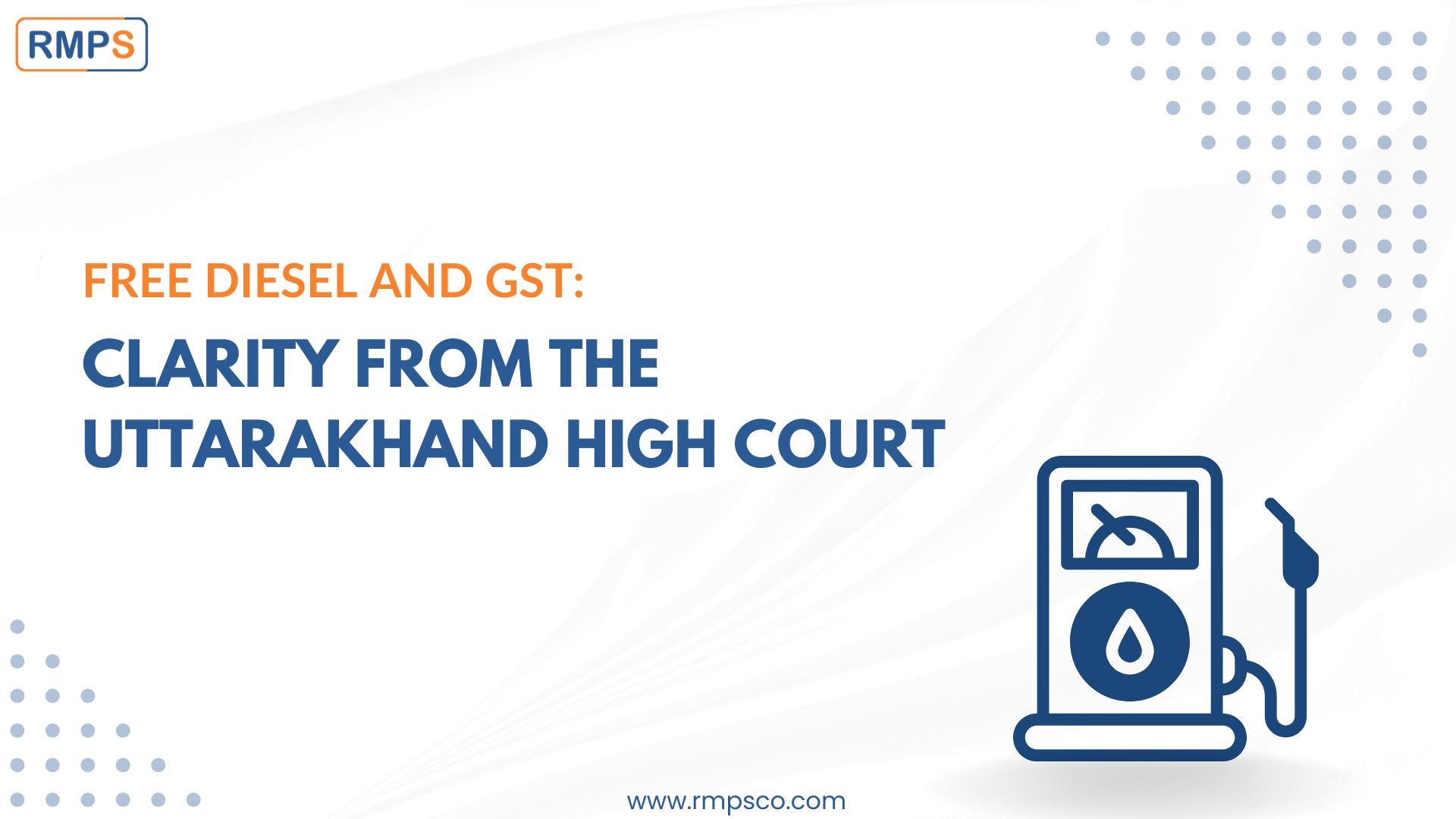
The Uttarakhand High Court recently addressed an important issue under GST. It ruled that free diesel provided by the recipient should not be added to the value of Goods Transport Agency (GTA) services for GST purposes. This decision, given in the case New Jai Hind Transport Service v. Union of India on September 27, 2024, clarifies how to calculate the value of supply under the CGST Act, 2017.
Key Highlights of the Judgment
1.Understanding “Value of Supply”
Under GST, the “value of supply” is defined in Section 15 of the CGST Act, 2017. It includes:
- The amount agreed upon for the service (Section 15(1)).Additional costs that directly relate to providing the service (Section 15(2)(b)).
2.GST on Actual Revenue
The court stressed that GST should only apply to the revenue earned by the service provider. It referred to earlier rulings, like those in Bhayana Builders Pvt. Ltd. and Intercontinental Consultants & Technocrats Pvt. Ltd., to explain this principle. Costs incurred by the recipient, such as providing free diesel, do not form part of the service provider’s income.
3.Protecting Service Providers
This ruling prevents service providers from paying GST on costs that do not increase their revenue. As a result, businesses can focus on their actual earnings without worrying about additional tax burdens.
4.Significance of Clear Contracts
The judgment highlighted the importance of clear agreements. If the contract excludes fuel costs from the freight charges, there is no reason to include them in the taxable value.
The Dispute in Brief
The petitioner challenged a decision by the Appellate Authority for Advance Ruling (AAAR). The AAAR had ruled that free diesel provided by the recipient must be included in the value of GTA services.
The petitioner argued that:
- Only freight charges were part of the agreement.
- Fuel costs were not part of the consideration.
On the other hand, the respondent claimed that fuel was necessary to perform the service. Therefore, its cost should be included in the taxable value under Section 15(2)(b). The court rejected this argument, explaining that only the agreed consideration matters for GST.
Why This Matters
This ruling provides clarity and fairness for businesses:
- Tax Planning: Service providers can calculate GST based on their actual income.
- Better Contracts: Businesses should define terms clearly in agreements to avoid disputes.
Conclusion
The Uttarakhand High Court’s decision protects service providers from undue tax burdens. It ensures GST is based on actual earnings, not on costs that others incur. This ruling is particularly helpful for the logistics sector, where free supplies like diesel are common.
To stay GST-compliant, businesses should focus on drafting clear contracts and understanding tax rules.
LinkedIn Link : RMPS Profile
This article is only a knowledge-sharing initiative and is based on the Relevant Provisions as applicable and as per the information existing at the time of the preparation. In no event, RMPS & Co. or the Author or any other persons be liable for any direct and indirect result from this Article or any inadvertent omission of the provisions, update, etc if any.
Published on: November 22, 2024
